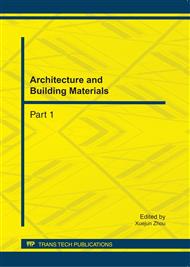p.617
p.624
p.628
p.633
p.638
p.644
p.650
p.654
p.660
Eco-Friendly Vernacular Rural Housing in Western China: a Case Study of a Reconstruction Project after 2008 Sichuan Earthquake
Abstract:
In the rapid urbanization of rural western China, a variety of long-standing housing typologies are being replaced with energy consuming brick-concrete structures that have little connection to vernacular traditions. To improve this situation, this paper proposes an ecologically sensitive alternative, based on a case study of the design and construction of 44 new dwellings in Daping Village, Sichuan Province, after that area was devastated by the May 12, 2008 earthquake. We propose that this eco-approach may represent a generalizable approach for sustainable development of vernacular architecture in western China.
Info:
Periodical:
Pages:
638-643
Citation:
Online since:
September 2011
Authors:
Price:
Сopyright:
© 2011 Trans Tech Publications Ltd. All Rights Reserved
Share:
Citation:


